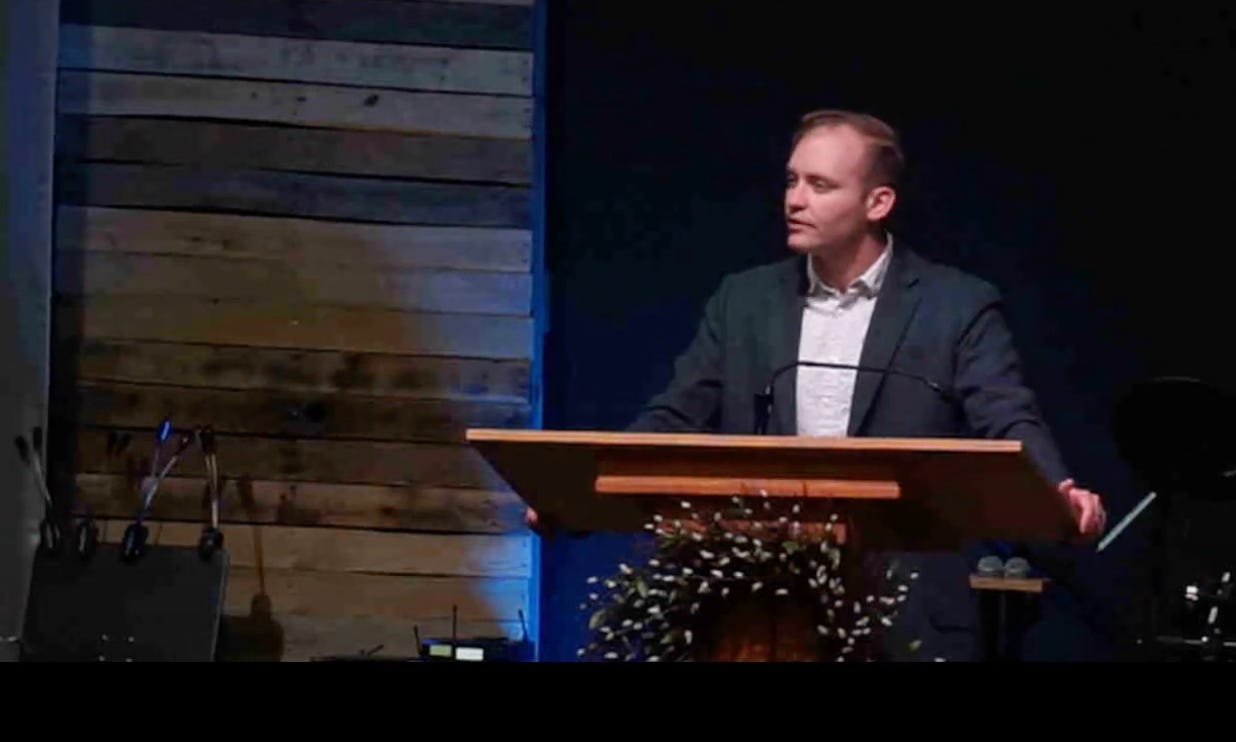Is this the end?
Reforming our understanding of Bible prophesy
This past Sunday, I began a series on the Olivet Discourse (Matthew 24-25). Bible prophecy causes much anxiety for many. But the question must be asked: Is prophecy something we can understand by allowing Scripture to interpret Scripture? Or is it comprised of codes that must be cracked by news headlines?
I think in our current cultural climate, it’s time we reform our understanding of the end and the true purpose behind studying Eschatology.
There are four main ways people have interpreted this text, and only one of them is heretical; one of them represents a false gospel.
First, Full preterism. This view sees this entire passage from 1-51 as entirely fulfilled prophecy. This view is a heresy condemned by Paul in his letters since it denies the bodily return of Jesus and the future resurrection of the body.
Second, Partial preterism. This view sees most of the passage already fulfilled by the events of AD 70, and the only thing not yet fulfilled is the descent of Christ to the earth in His second coming to usher in the new creation. This is an orthodox position held by many reputable scholars, R.C. Sproul and others.
Third, Futurism (Dispensational-premillenialism). This view teaches that this passage is all future. None of this passage has been fulfilled in the past, but will be experienced by those left on the earth during a 7-year tribulation period which follows a rapture of the church where Christ descends partially and secretly to snatch believers away from the earth before Jesus comes again to judge and usher in a 1,000-year reign on the earth.
You may read that last one and nod your head with enthusiasm and say, “Well, of course! Is there any other view?” If you thought that, it’s because this view has been so incredibly popular in American Christianity that the other views have gotten eclipsed. Popularized in the 1800s, this view is associated with the Left Behind novels and movies and is a perspective that is often assumed today. And I will say, many smart men and women of God hold this view; men we respect, like Dr. John MacArthur, who recently went home to be with the Lord, Dr. David Jeremiah, and many others.
I’m proposing a third way (out of the three orthodox options), often known as Idealism or a Redemptive-Historical approach. This view examines the text through an “already/not yet” lens, incorporating elements from both the orthodox views I mentioned. I’m no expert, and many may disagree with me, but I think it makes the most sense of the rest of the Scriptural data we have, including a Christ-centered (redemptive-historical) hermeneutic, the concept of the inaugurated kingdom of God, and the “two-age” model, all given to us by Jesus and the Apostles. Many throughout history have held this view, but I’m especially indebted to the contemporary works of Drs. Sam Waldron, Kim Riddlebarger, and Michael Horton, which helpfully guide people through this passage. Go here to pick up Sam Waldron’s new comprehensive guide to Eschatology.
The burden on my heart for our church and for as many who will listen is that we would, on the one hand, display humility in our disagreements with other Christians and not treat other believers as sub-Christian if they take another position. On the other hand, I pray we avoid the fear-mongering and “newspaper Eschatology” that is often bred by these conversations.
May God bless your study as you anticipate, long for, and live in light of Christ’s soon return!



